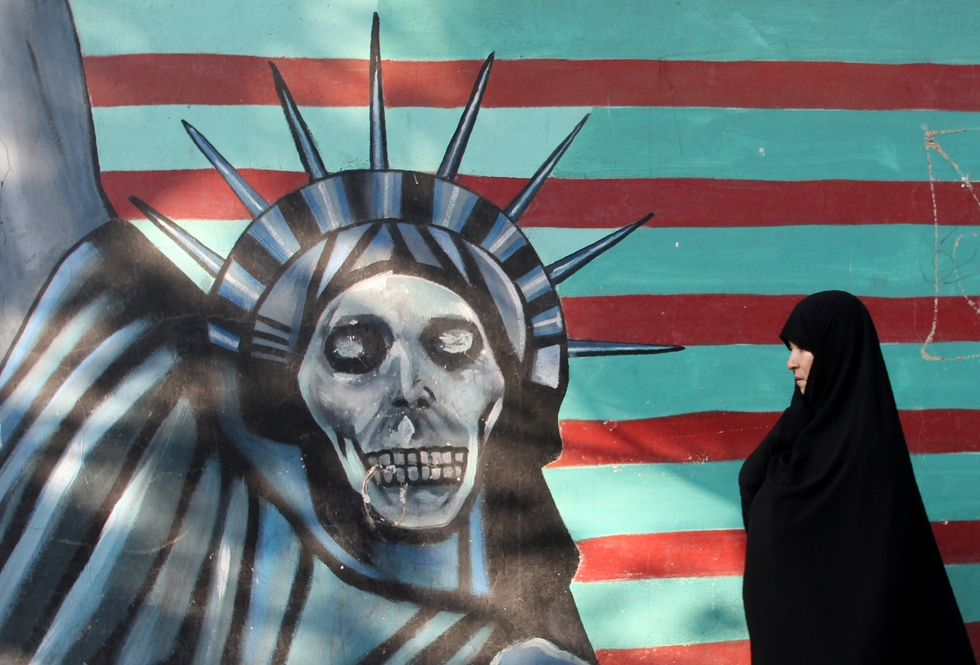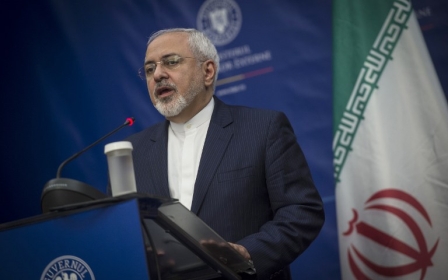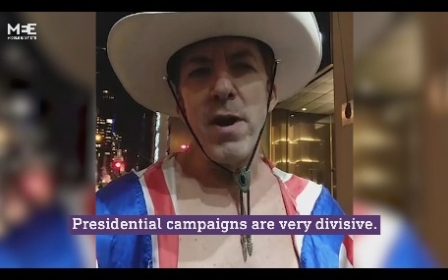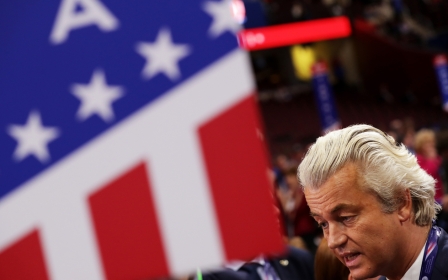Iran fails to meet terms of nuclear deal, says UN watchdog

Iran has exceeded a soft limit on sensitive material set under its nuclear deal with major powers, the UN atomic watchdog said on Wednesday, according to agency reports. The report came hours after Donald Trump - who has strongly criticized the agreement - won the US presidential election.
On Wednesday Iranian Foreign Minister Mohammad Javad Zarif called on US president-elect Trump on Wednesday to stick to international agreements following his threats during the election campaign to tear up a nuclear deal with Tehran.
READ: Why Iran wanted Donald Trump as US president
"Every US president has to understand the realities of today's world. The most important thing is that the future US president stick to agreements, to engagements undertaken," Mohammad Javad Zarif said in Romania.
'The most important thing is that the future US president stick to agreements, to engagements undertaken'
- Mohammad Javad Zarif, Iranian foreign minister
This is the second time Tehran has surpassed the 130 metric tonne threshold for heavy water, a material used as a moderator in reactors like Iran's unfinished one at Arak, since the deal was put in place in January. It had 130.1 tonnes of the material on Tuesday, the watchdog said.
Iran agreed to redesign the Arak heavy water reactor during the nuclear deal negotiations, which the P5+1 had called a proliferation threat because of the estimated 10kg of plutonium that it would produce annually.
The last time Iran overstepped that mark was brief, passing without any major criticism from the other countries that signed the nuclear deal last year. But there are questions about whether the incoming Trump administration will react to such incidents in the same way.
Iran: We will ship heavy water out of country
"On 2 November 2016, the director general expressed concerns related to Iran's stock of heavy water to the vice president of Iran and president of the Atomic Energy Organization of Iran... Ali Akbar Salehi," the International Atomic Energy Agency (IAEA) said in a confidential report seen by Reuters.
The IAEA is policing the restrictions placed on Iran's nuclear activities under the deal it signed with the United States, Russia, China, Britain, France and Germany. The agreement also lifted international sanctions against Tehran.
'It's important to note that Iran made no effort to hide this, hide what it was doing from the IAEA'
Mark Toner, US State Department spokesman
Iran told the agency it would prepare to transfer five tonnes of heavy water out of the country, as provided for in the deal. A senior diplomat said Iran planned to carry out the shipment in the coming days.
A US State Department spokesman, speaking at a regular news briefing in Washington, confirmed Iran's intention to export the excess heavy water.
"It's important to note that Iran made no effort to hide this, hide what it was doing from the IAEA," spokesman Mark Toner said.
READ: Trump or Clinton? Regardless, the Iran nuclear deal is headed for trouble
Rather than setting a strict limit on heavy water as it does for enriched uranium, the deal estimates Iran's needs to be 130 tonnes and says any amount beyond the country's needs "will be made available for export to the international market".
Trump has called the agreement, one of President Barack Obama's top achievements, "the worst deal ever negotiated" and said he would "police that contract so tough they (the Iranians) don't have a chance".
Before his election, he vowed to rip up last year's deal with world powers which lifted international sanctions in return for curbs on Iran's nuclear programme.
Despite Iran also exceeding the heavy-water limit in February, with 130.9 tonnes, Tehran insists its nuclear programme is peaceful and has so far met its obligations under the deal, but Supreme Leader Ayatollah Ali Khamenei has said he would happily "burn" the agreement if Trump decides to tear it up.
Middle East Eye propose une couverture et une analyse indépendantes et incomparables du Moyen-Orient, de l’Afrique du Nord et d’autres régions du monde. Pour en savoir plus sur la reprise de ce contenu et les frais qui s’appliquent, veuillez remplir ce formulaire [en anglais]. Pour en savoir plus sur MEE, cliquez ici [en anglais].




